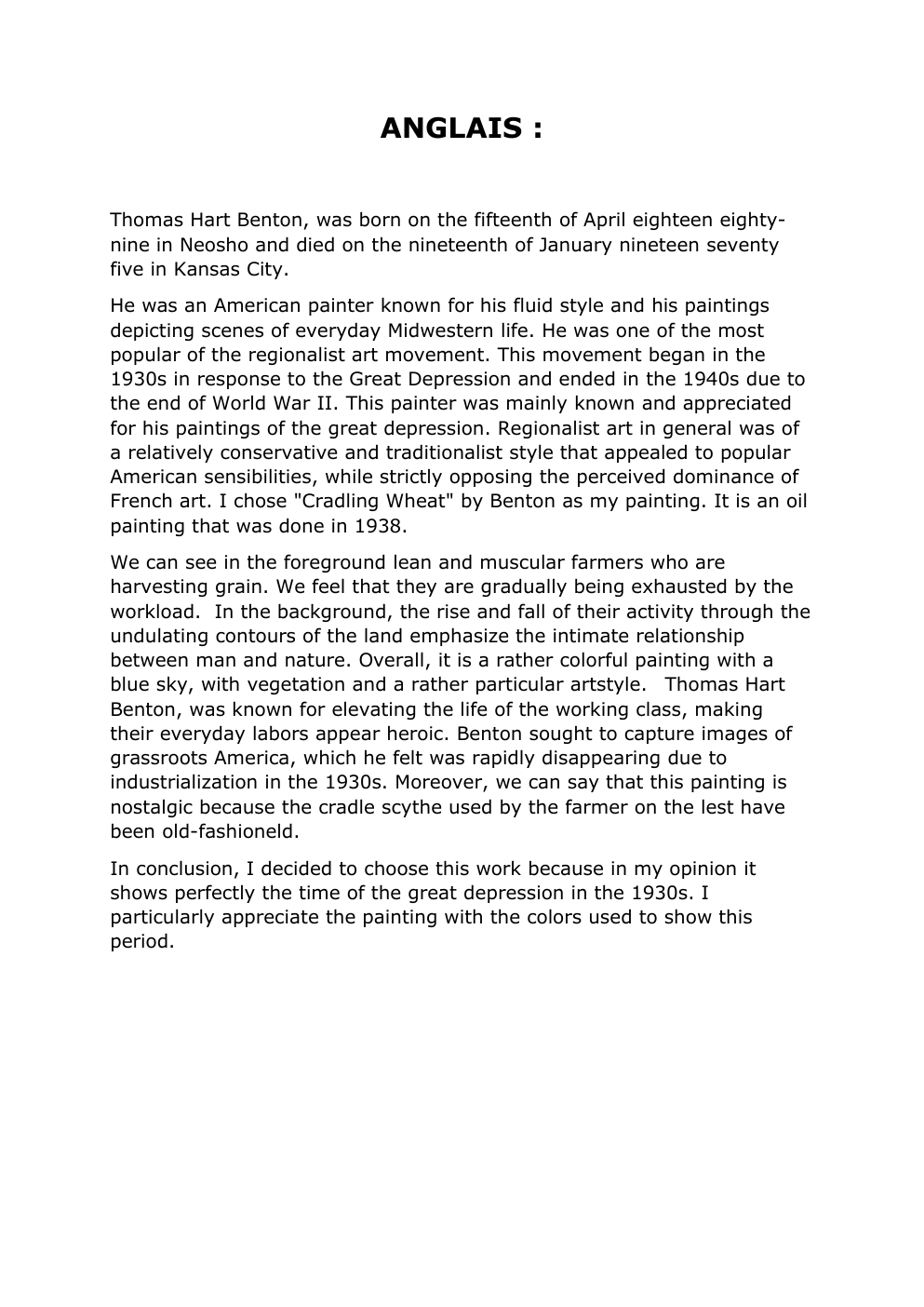Thomas Hart Benton
Publié le 28/05/2022

Extrait du document
«
ANGLAIS :
Thomas Hart Benton, was born on the fifteenth of April eighteen eightynine in Neosho and died on the nineteenth of January nineteen seventy
five in Kansas City.
He was an American painter known for his fluid style and his paintings
depicting scenes of everyday Midwestern life.
He was one of the most
popular of the regionalist art movement.
This movement began in the
1930s in response to the Great Depression and ended in the 1940s due to
the end of World War II.
This painter was mainly known and appreciated
for his paintings of the great depression.
Regionalist art in general was of
a relatively conservative and traditionalist style that appealed to popular
American sensibilities, while strictly opposing the perceived dominance of
French art.
I chose "Cradling Wheat" by Benton as my painting.
It is an oil
painting that was done in 1938.
We can see in the foreground lean and muscular farmers who are
harvesting grain.
We feel that they are gradually being exhausted by the
workload.
In the background, the rise and fall of their activity through the
undulating contours of the land emphasize the intimate relationship
between man and nature.
Overall, it is a rather colorful painting with a
blue sky, with vegetation and a rather particular artstyle.
Thomas Hart
Benton, was known for elevating the life of the working class, making
their everyday labors appear heroic.
Benton sought to capture images of
grassroots America, which he felt was rapidly disappearing due to
industrialization in the 1930s.
Moreover, we can say that this painting is
nostalgic because the cradle scythe used by the farmer on the lest have
been old-fashioneld.
In conclusion, I decided to choose this work because in my opinion it
shows perfectly the time of the great depression in the 1930s.
I
particularly appreciate the painting with the colors used to show this
period..
»
↓↓↓ APERÇU DU DOCUMENT ↓↓↓
Liens utiles
- La philosophie est la servante de la théologie. Péguy (saint Thomas d'Aquin)
- Thomas S. Kuhn : La Structure des révolutions scientifiques (résumé et analyse)
- Thomas Wolfe
- Couture, Thomas Lacordaire, Henri
- Thomas Sankara


